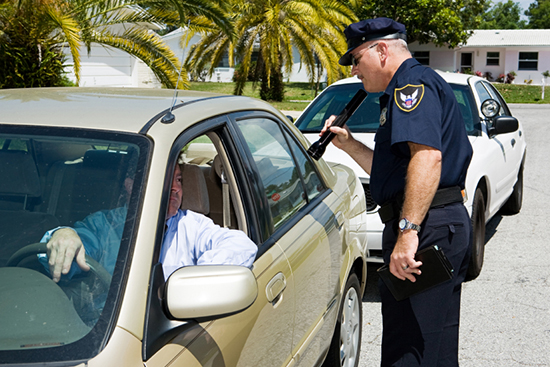Can Police in Michigan Search Your Phone During a Traffic Stop? There are important questions about privacy and the power of the police that this raises. A big question is: Can police in Michigan check your phone when they pull you over for speeding?
To guard your right to privacy, you must be well aware of the law and your rights. This article explains the Michigan laws that permit the police to search phones of motorists arrested during traffic stops.
The Fourth Amendment and Rights to Privacy
The US Constitution’s Fourth Amendment states that nothing is more likely to ignite public outcry than for the government to conduct a search or seizure without cause.
Because it is a right on its own, the police need to mostly get an order based on probable cause before they search somebody. There are, however, some loopholes to this rule, especially when police are stopping cars.
Traffic Stops and the Search Incident to Arrest Doctrine
During a traffic stop, police officers are generally allowed to ensure their safety and prevent crime. Such authority can sometimes extend to the extent that they would search the vehicle and persons involved.
The “search incident to arrest” doctrine has long allowed police to search a person and the immediate area within their control once they have lawfully arrested him. But what about your phone?
Landmark Supreme Court Cases
Riley v. California (2014) and Arizona v. Gant (2009) were two landmark United States Supreme Court decisions that significantly changed the rules about what police can and cannot do when they take your phone in a traffic stop.
In Riley v. California, the Supreme Court said police usually have to get a warrant before they are allowed to search a cell phone taken at the time of arrest.
The Court recognized that modern cell phones contain much personal information and, therefore, are distinguishable from other items that may be found in a search. It was an important ruling in the determination that privacy must be protected in the digital age.
Arizona v. Gant (2009)
In Arizona v. Gant, the Supreme Court capped how many types of searches could occur in a car during an arrest.
The Court said that police can only search a car where someone has recently been arrested if they have a good reason to think that the person who was arrested might be in the car at the time of the search or if the car has evidence that is related to the arrest.
This case shows how important it is to have clear reasons for searches that go beyond a simple traffic stop.
Michigan Law on Phone Searches
When it comes to searching people’s phones during traffic stops, Michigan law is the same as federal law. Before checking your phone, Michigan police usually need to get a warrant. But there are some slights and exceptions that you should be aware of.
Consent Searches
A frequent example of this is consent. Cops do not require a warrant to search your phone if they obtain permission to do so. You also have the right to say no to a check, which is something you should know.
Exigent Circumstances
Exigent circumstances are when police think that someone needs to be moved right away before they get hurt, evidence from being destroyed, or a suspect from getting away. In such cases, the cops can search without a warrant. But these things don’t happen very often and have to be backed up by plain facts.
Michigan Traffic Stop Statistics and Facts
If you know more about Michigan’s traffic stops in general, then you would get a better idea of how often and why cell phone searches are likely to take place. These facts and data are important:
Number of Stops: In 2022, the Michigan State Police claim that there were more than 1.5 million stops in Michigan. It’s a common traffic stop, so there’s bound to be some connection during the search of phones.
Arrests and Searches: As many as 1 in 10 times a person is stopped for driving in Michigan end in an arrest. While phone searches themselves are not always part of arrests, it is useful to know what the law says in case you find yourself in this position.
Differences by race: Some researches have indicated that the rate at which police stop and search minority drivers is higher than other drivers. Knowing all these differences will help people discuss how reasonable and how law-breaker rules should be applied to law abiding citizens.
Case Studies and Real-Life Examples
Determining the overall use of the law in real life will call for a look at actual cases. Here are just a few of them:
Case Study 1: The People v. Frederick
The defendant in this Michigan case was pulled over for violating the law. While doing that, the police officer smelled marijuana, and then he detained the individual.
He then proceeded to rifle through the defendant’s phone without an order. The court ruled that the search was illegal, which proves how significant it is to have a warrant or proper authorization.
Case Study 2: The People v. Bowman
In yet another case in Michigan, a man was arrested when he was driving drunk. The police obtained a warrant to search the defendant’s cell phone, which they did and retrieved evidence that could be used against him.
The court upheld the search, demonstrating the importance of adhering to procedure in obtaining an order.
Defending Rights During a Traffic Stop
Knowing your rights and how to use them if you’re ever pulled over for speeding can definitely help protect you of privacy. Here’s some useful tips:
Stay Calm and Cool: Sitting down with the police is pretty stressful. However, it’s always necessary to maintain your cool and remain polite.
Know your rights: You have the right to refuse a search if you want to. If they ask you, you can reply with a “no.”
Ask to Be Clear: If the police officer intends to investigate your phone, you should ask them if they have a warrant. If not, reassert that you will not consent to the search.
Record the Interaction: If possible, audio record the conversation using your cell phone or other recording device. This will help you create a record of the encounter and preserve your rights.
Conclusion
Protecting your privacy requires knowledge about the search laws of your mobile phone during Michigan stops.
Police usually need a warrant to check your phone, but there are times when they do not and you give them permission or there are emergency situations.
You will be quite sure when you are stopped in traffic and you will keep your private life to yourself if you know your rights, how and when to use them.


 by
by 




